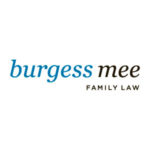Wills & Trusts Law Reports | Spring 2019 #174A company was incorporated by the husband and a friend in 1978 as equal shareholders. The husband and wife started living together in 1986, and married in 1989. At this point, the husband acquired 99% of the shares and the wife 1%. They separated in 2015.
On a wife’s application for a financial remedy order, the judge found that the capital assets were £182m in properties and pension funds, and 100% of the shares in a private company, which he valued at £221m before tax and costs of sale. He found that 80% of the company’s value was marital property, by applying a straight-line ap...
Vikkie Chetcuti examines case law developments on pre-nuptial agreements, in particular as to legal advice, jurisdiction clauses, needs and sharing, in the post-Radmacher era ‘In Brack the Court of Appeal grappled with the issue of whether the mere existence of a valid pre-nuptial agreement meant the court was constrained as a matter of course from …
Continue reading "Pre-nuptial agreements: Agreeing to disagree"
This post is only available to members.
Elizabeth Simos looks at issues of conduct and non-disclosure, and the impact where adverse inferences are drawn in needs cases ‘Arguments as to add-backs essentially come down to issues of conduct, namely conduct that it would, in the opinion of the court, be inequitable to disregard.’ Much to the dismay of ‘wronged’ spouses in England …
Continue reading "Conduct: Balancing the scales"
This post is only available to members.
Charles Eastwood discusses when it may be fair for a party to use capital awarded following the application of the sharing principle to generate income ‘The court will always need to look at all the relevant circumstances of each case when deciding whether and how a party should fairly be using their free capital to …
Continue reading "Financial provision: Sharing the burden"
This post is only available to members.
Joe Ailion highlights a case in which, inter alia, a lack of legal advice in relation to a pre-marital agreement did not protect a dissenting party ‘It would be impractical, and prohibitively expensive, for parties to obtain advice in any of the multiple possible matrimonial regimes in which a “globe-trotting” couple may divorce.’ In a …
Continue reading "Marital agreements: Proceed with caution"
This post is only available to members.
Che Meakins looks at the issue of needs in financial proceedings, and the guidance available to assist parties, practitioners and the courts ‘In the case of a financial application made at the time of separation, the court is likely to classify any identified needs as generated by the relationship more or less by default.’ Family …
Continue reading "Financial provision: A helping hand"
This post is only available to members.
Moji Sobowale examines non-matrimonial assets and the differing approaches to such assets that have developed in case law ‘The court has a wide discretion as to how to arrive at a fair apportionment of the capital assets and can simply apply a broad assessment of the division that would affect “overall fairness“.‘ The Court of …
Continue reading "Non-matrimonial property: Diverging views"
This post is only available to members.
Kevin Danagher examines the High Court’s decision in Christoforou v Christoforou, and the approach to evidencing claims that are non-matrimonial ‘Non-matrimonial property provides the court with a reason to depart from equality, and in some cases fairness suggests that the party with non-matrimonial property should be allowed to keep it, subject to issues of need …
Continue reading "Non-Matrimonial Assets: The significance of origin"
This post is only available to members.
In the conclusion to a two-part analysis, Deborah Jeff considers the law on non-matrimonial assets and the key principles applied ‘While non-matrimonial property is subject to the sharing principle, it still typically results in a departure from equal sharing – anything from 0-100%.’ The first part of this article looked at the Privy Council decision …
Continue reading "Non-Matrimonial Property: Beyond reach?"
This post is only available to members.
Natasha Kurth suggests that arguments as to conduct should be rare in financial proceedings, and approached with caution ‘In R v B each party accepted that the conduct allegations raised could amount to conduct that it would be inequitable to disregard, but denied that the factual position justified such a finding in this case.’ The …
Continue reading "Conduct: The blame game"
This post is only available to members.









